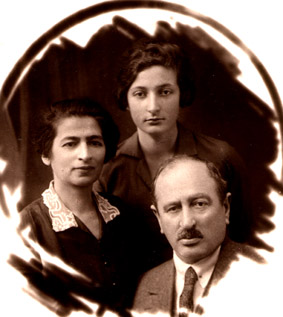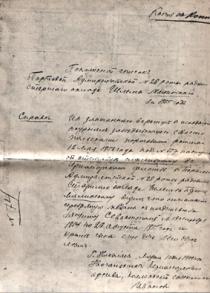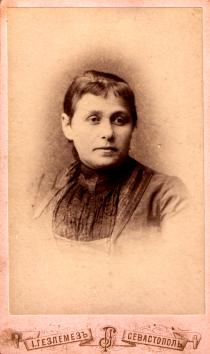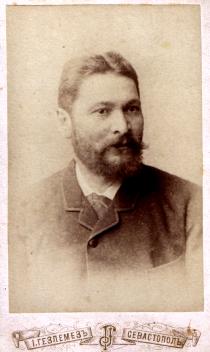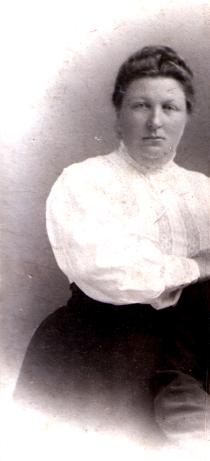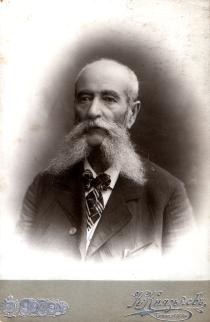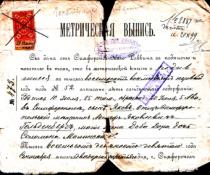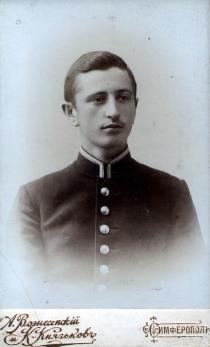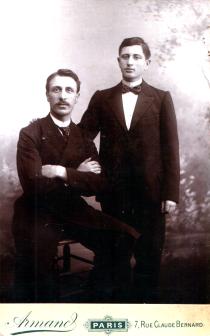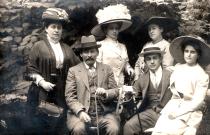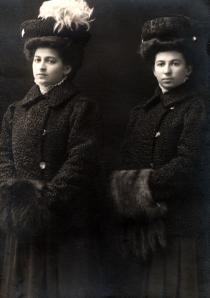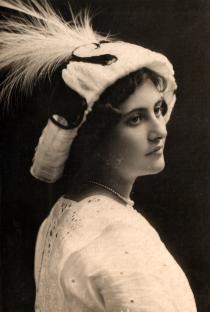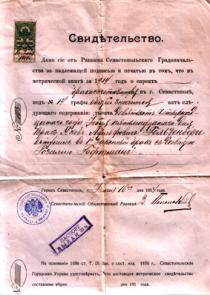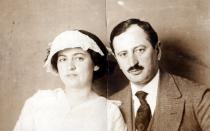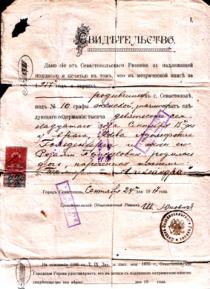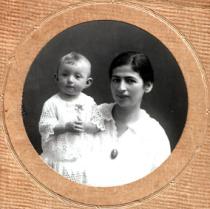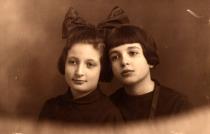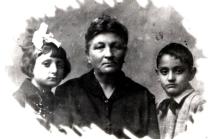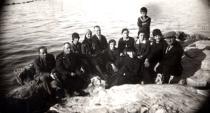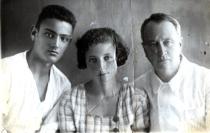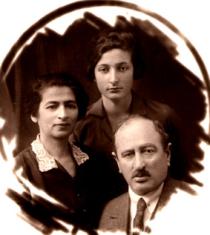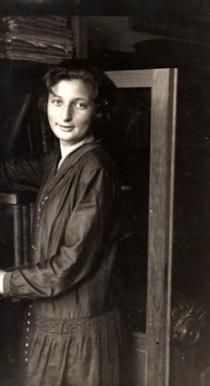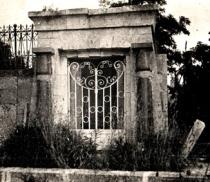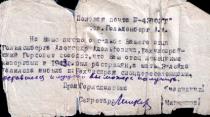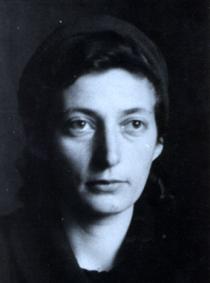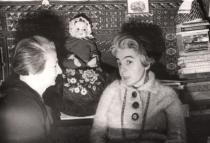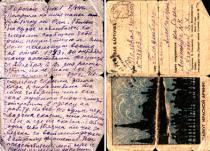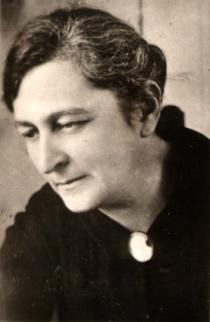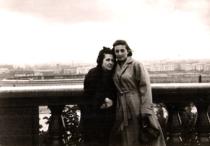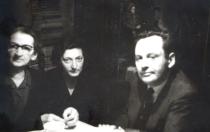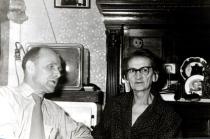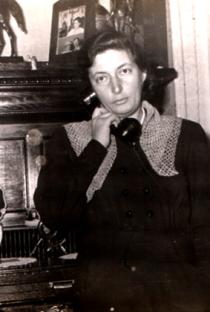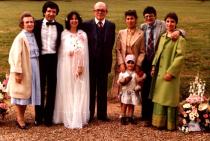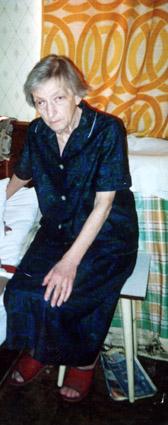This is me with my parents Rosalia and Jacob Goldenbergs.
The picture was taken in Sevastopol in 1937 shortly before father's death.
In 1917 my maternal grandfather Pincus Geftman immigrated with his family. All Geftmans left, but my mother. My relatives did not approve of revolution.
My parents refused to leave the motherland. They thought that such educated and prosperous people would do well in Soviet Russia, and besides he did not want to sever with his relatives.
He also was sure that the doctor of such a level would always be in demand no matter who was wielding the scepter.
Our live was not all beer and skittles. First of all these were the times of starvation and drought in the country, and the salary of my father was very skimpy no matter how well-qualified my father was.
His salary was not enough to make a living, and mother tried real hard to feed us. She sold some of the things left by our relatives in the commissioner shops or swapped them in the market for food.
My parents were not religious. We did not mark any religious holidays or rites at home. Though, my father's friends got together in our house. My father was a mirthful and an interesting man. He was loved by people.
In 1931 I went to the closest 7-year school in our vicinity. I was more prone for the Arts than sciences, but nobody was interested in that. At that time engineering sciences were more important, while the Arts were condoned. I finished school satisfactorily.
It was decided that I should enter Foreign Languages Institute as I knew French. One of my father's patients had some connections in Moscow.
He was very grateful to my father, who rescued his life, and he got to know all information for the admission in the institute and took all my papers in Moscow. I was very modest and bashful at that time, and not very prudent.
I was always being ashamed of something. I was full 17. I remember the day when I came to the institute wearing a white hat. I did not pass Russian exam very successfully, but my French was pretty good, and I was accepted. I stayed with my father's sister, Adelaida for two years.
Her husband Ivan Chetverikov was exiled from Moscow as a philosophy professor because he underestimated the significance of Marxist theory. In 2 years he was allowed to live near Moscow. He came back home, and I came to live in the hostel.
There were 6 girls in one room from different cities. We were very friendly and helped out each other. We shared food and had meals together. I remember how we bought very expensive dressy shoes for everybody to share on important occasions, like a date or a wedding.
Meanwhile the institute life continued. We got together in the conference hall to listen to Stalin's speeches on the radio or to watch modern movies.
There were also a lot of circles. I was fond of literature and enjoyed studying in general. On weekend my friends and I used to go to the cinema, museums theatre. We also went dancing and met with the boys. I remained timid and shy, and did not date anybody.
After graduation I was allocated to Obninsk [about 100 km to the south from Moscow], to the Spanish orphanage, where children of Spanish anti-fascists stayed.
Obninsk was a hick town, though picturesque. Some of my fellow students left with me there. We settled in the hostel. Our life there was tedious and monotonous.
Father was severely ill at that time, and before leaving for work I decided to visit my parents. My father passed away on the day of my arrival. He did not recognize me.
He confused me the younger sister Adelaida. But I was told he was awaiting me that night. It was the year of 1938. Almost the whole city was at my father's burial. He was so revered.
